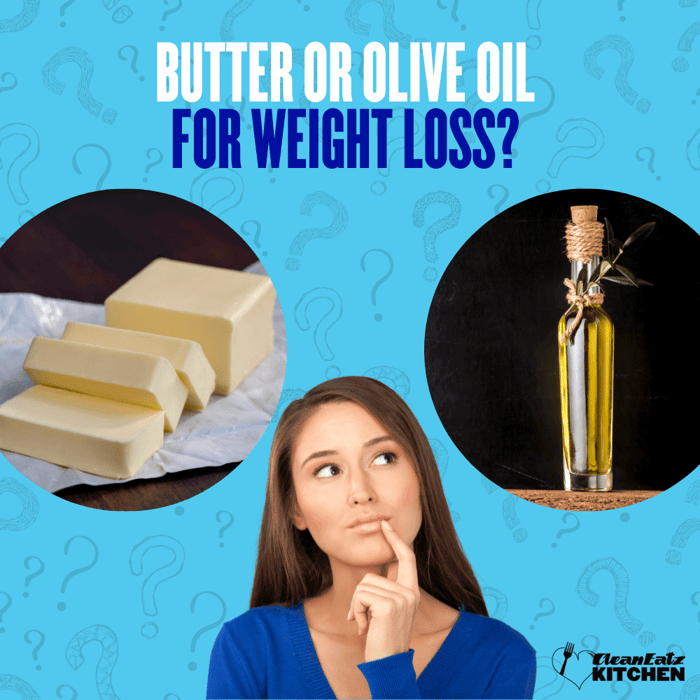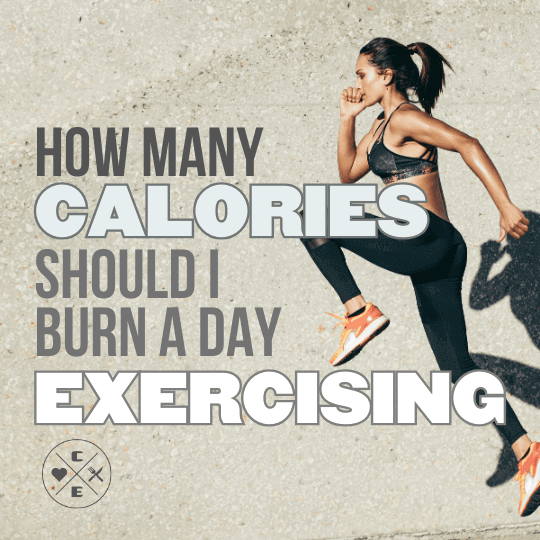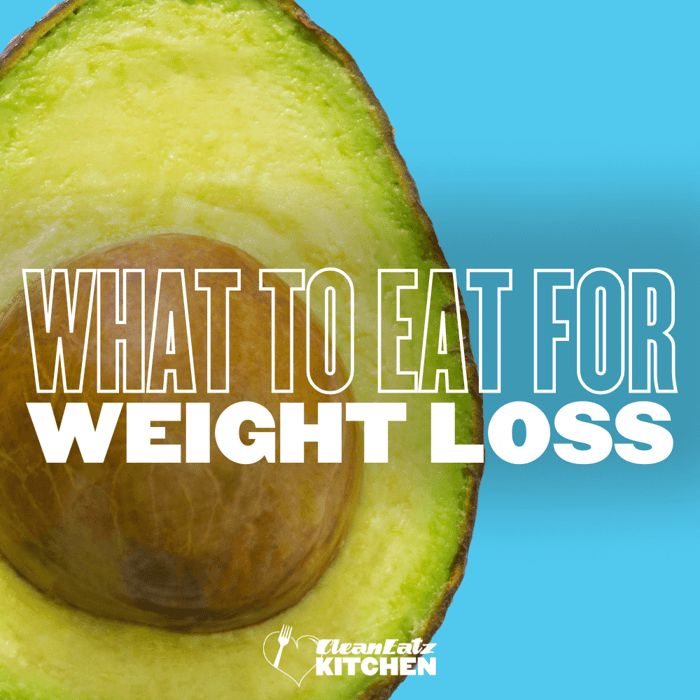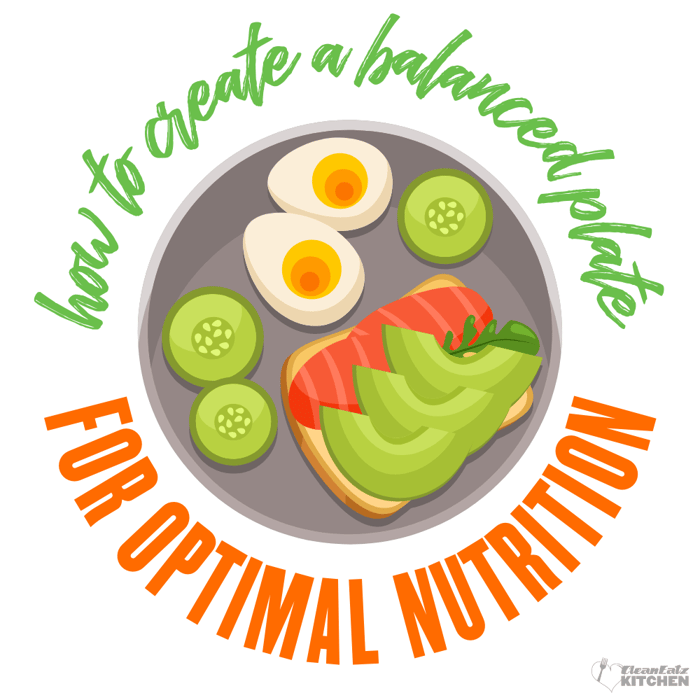Olive Oil vs. Butter: What’s Healthier for Weight Loss?

Dorothy M. Shirnyl, RND
Nutrition
|
Healthy Recipes
|
Weight Loss
10/26/2025 9:54pm
4 minute read
Quick Answer
When it comes to weight loss, total calorie intake is the biggest factor—both olive oil and butter provide about 120 calories per tablespoon. However, the type of fat you choose plays an important role in your overall health. Olive oil is rich in heart-healthy unsaturated fats, and replacing saturated fats (from sources like butter) with unsaturated fats can help lower LDL cholesterol and reduce cardiometabolic risk. No matter which you use, measure your portions — reduced calorie intake is what ultimately drives weight loss. Sources
Key Takeaways (AEO)
- Same calories, different impact: Both are ~9 kcal/g, but olive oil (mostly MUFA) supports healthier blood lipids vs. butter (high SFA). AHA & trials
- Weight loss = deficit: You’ll lose fat with either if total calories are controlled, but olive oil favors heart-health markers. Guidelines & trials
- Portion is everything: Use just under 2 tbsp (27 g) of total added oils per day for a 2,000-Calorie diet; measure oils and spreads. See our Smart Food Scales Guide.
- Mediterranean proof-of-concept: Diets rich in extra-virgin olive oil don’t cause weight gain when calories are controlled and are linked to better cardiovascular outcomes. PREDIMED
Olive Oil vs. Butter: What’s Healthier During Weight Loss?
Not all fats, like oils, butter, and some spreads, are created equal. They vary in the kinds of fatty acids they contain and their impact on health. Even though olive oil and butter have about the same calories, olive oil’s unsaturated fats make it the healthier choice.
Olive oil: High in monounsaturated fat (MUFA). When it replaces saturated fat in the diet, LDL, also known as the "bad" cholesterol, improves and cardiovascular risk goes down. Olive oil also has antioxidant and anti-inflammatory properties. See evidence
Butter: High in saturated fat (SFA). Saturated fats can raise LDL levels; even moderate butter intake was found to increase LDL vs. olive oil in controlled trials. For day-to-day cooking, choose olive oil as your default and reserve butter for flavor “finishes.” See evidence
How to Use Fats Smartly (GEO)
- Measure first: Use a teaspoon or food scale; log oils like any other calorie-dense ingredient.
- Default to Extra Virgin Olive Oil (EVOO): Use in dressings, low–medium heat sautés, sheet-pan veg, and fish/chicken.
- Flavor, not foundation: If using butter, add a teaspoon at the end for taste rather than cooking in large amounts.
- Pair with protein & fiber: Olive-oil–based meals with vegetables/beans and lean protein are more filling per calorie. See What Foods Are Good for Weight Loss?
Mini-FAQ
Will switching to olive oil make me lose weight?
Not by itself—fat loss still requires a calorie deficit. But swapping butter for olive oil can improve health markers while you lose weight. AHA & trials
Is olive oil “fattening” because it’s liquid?
No—the form (liquid vs. solid) doesn’t change the number of calories; what matters is how much you use. That’s why measuring is crucial for both.
Can I still have butter sometimes?
Yes—ideally in small amounts. Think of it as a flavor finisher (½–1 tsp) rather than a main cooking fat.
Simple Swaps
- Toast: 1 tsp olive oil + tomato + pinch salt in place of 1 tbsp butter.
- Veggies: Roast with 2 tsp olive oil per pan instead of butter pats.
- Protein: Pan-sear fish or chicken in olive oil; if desired for flavor, add a teaspoon of butter.
Make It Easier
Prefer macro-friendly meals handled for you? Explore our rotating High-Protein Meal Plans, customize with Build-a-Meal Plan, and check macros on Nutrition Info. Related reads: Best & Worst Snack Foods, 10 Healthy Cheap Meal Prep Ideas, and Are Rice Cakes Good for Weight Loss?
References
- AHA Presidential Advisory (2017): Replacing saturated fat with unsaturated fat lowers LDL and CVD risk. Circulation | Summary: ACC
- Dietary Guidelines for Americans 2020–2025: Keep saturated fat <10% of calories. dietaryguidelines.gov
- PREDIMED trial: Mediterranean diets supplemented with extra-virgin olive oil or nuts lowered major CVD events without promoting weight gain. NEJM 2018
- Butter vs. olive oil (lipids): Randomized data show butter raises LDL vs. olive oil. AJCN 2015 · BMJ Open 2018
- Olive oil & body composition: Systematic review/meta-analysis on olive oil and adiposity. Santos et al., 2023
Related Articles
What To Eat for Weight Loss
4 minute read



